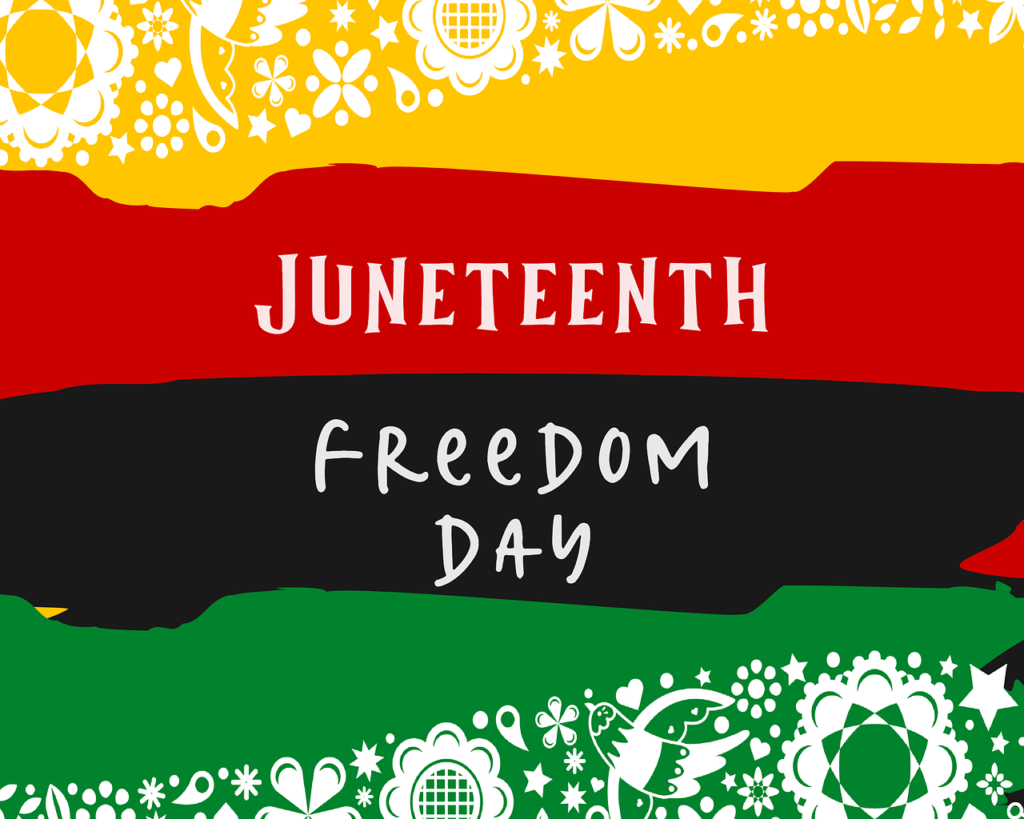
Juneteenth

Black Americans have been celebrating Juneteenth since 1866.
What is Juneteenth? What is the history behind the holiday?
When the 1860 census was recorded, there were four million people held in slavery in southern states, including Maryland and Delaware. White farmers depended on that free labor to grow and harvest their crops.
Abraham Lincoln, who was a candidate for president in 1860, was morally opposed to slavery. White southerners feared he would abolish slavery if he became president of the United States.
One month after Lincoln was elected southern states began seceding from the Union. Eleven states seceded, including Texas, where Juneteenth began. The states that left the Union, South Carolina, Mississippi, Florida, Alabama, Georgia, Louisiana, Virginia, Arkansas, Tennessee, and North Carolina became the Confederate States of America. and hoped to form their own nation.
In 1863, two years after the Civil War began President Lincoln issued the Emancipation Proclamation. The Proclamation declared “that all persons held as slaves” within the rebellious states “are, and henceforward shall be free.”
During the war, whenever the Union Army won a battle soldiers would let enslaved Americans know they were now free.
When the war ended with the surrender of the Confederate army on April 9, 1865, all enslaved persons in Confederate states became free.
The news of the Union victory spread throughout the South. However, it took a long time for it to reach some towns.
The news did not reach Galveston, Texas until June 9, 1865, two months after the war ended. On that day, Union General Gordon Granger led soldiers, including members of the United States Colored Troops, into Galveston, Texas. General Granger announced the end of the war and read General Order 3 which said, “The people of Texas are informed that in accordance with a Proclamation from the Executive of the United
States, all slaves are free.” Note: Some enslavers still withheld the news until the end of harvest season.
Enslaved Texans celebrated and called it Freedom Day. They officially started celebrating June 19 in 1866 and have continued the tradition. Since the news of “freedom from enslavement” arrived on June nineteenth, the two words were combined, and the day became Juneteenth. When Black Texans migrated to other states, they carried the Juneteenth tradition with them. Soon, other states were celebrating the day that is known as “Black Independence Day.”
On January 1, 1980, Juneteenth became an official state holiday in Texas, called Emancipation Day. Through the years, Black Americans have campaigned to make Juneteenth a federal holiday. Once person who worked to make Juneteenth a holiday for all Americans was Opal Lee.
Opal was born in Marshall, Texas on October 7, 1926. She grew up hearing stories about early Juneteenth celebrations and how enslaved Black Americans in Texas did not know they were free until two months after the Civil War ended.
Opal Lee has always celebrated Juneteenth and believes all Americans should observe the day.
In 2016, at the age of eighty-nine she led a movement to make Juneteenth a federal holiday. Opal walked 2.5 miles a day across cities in America, gathering signatures along the way for her petition to the US Congress.
When Opal was ninety-four, the US Senate and the US House of Representatives passed legislation to make Juneteenth a federal holiday. On the day President Joe Biden signed the legislation into law, Opal Lee was at the White House standing by his desk to witness the historic moment June 19 become “Juneteenth National Independence Day.”
We should all observe Juneteenth National Independence Day. It is the only day that acknowledges the enslavement of Black Americans and the only holiday that celebrates their freedom.
Kathy Trusty is the founder of Black History Ed Zone, a Black history education company. Its mission is to make it easy for teacher-parents to include Black History throughout the school year.
This content is restricted to site members. If you are an existing user, please login. New users may register below.
